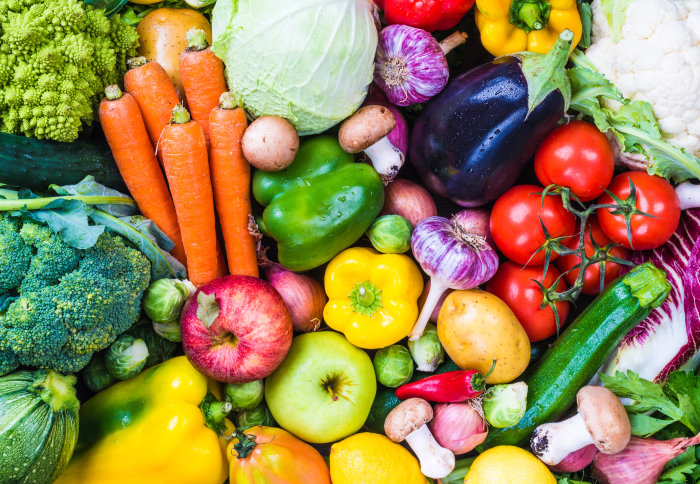Smartphone network helps uncover hundreds of anti-cancer molecules in our food
by Ryan O'Hare

Supercomputers and hyperfoods
A crowdsourcing project which uses thousands of idling smartphones has helped to uncover anti-cancer properties of everyday foods and medicines.
The project, led by researchers at Imperial College London, uses artificial intelligence to crunch huge volumes of data on a ‘cloud computing’ network of smartphones while they charge overnight.
Among the latest findings are insights into existing medicines for diabetes and infections and their potential to be repurposed to target cancer, as well as identifying hundreds of anti-cancer molecules in everyday foods such as oranges, cabbages and grapes.
The Imperial team, led by Dr Kirill Veselkov from the Department of Surgery & Cancer, has worked with the Vodafone Foundation – who make the DreamLab app – to carry out the research.


By downloading the app and running it at night while their phones charge, members of the public can donate some of their phone’s unused processing power to crunch data and help to speed up cancer research while they sleep.
The latest findings from the project, published in the journal Scientific Reports, used the platform to analyse data on the molecular content of more than 8000 everyday foods, identifying more than 110 cancer-beating molecules. Many of these molecules are flavonoids, the huge class of compounds which help to give fruit and vegetables their colour.
The next step is to use AI technologies to explore the impact that different combinations of drugs and food-based molecules could have on individuals Dr Kirill Veselkov Imperial College London
They also found anti-cancer properties associated with a number of existing medicines, highlighting the potential for the drugs to be ‘repurposed’ to target cancer. Chief among these are the anti-diabetic drug Metformin and anti-microbial Rosoxacin.
The team says as the drugs have already been in therapeutic use, their approval for use as cancer therapies carries fewer risks, substantially lower costs and will involve shorter timescales than developing completely new drugs.
While these early-stage findings are encouraging, the researchers say further work is now needed to confirm any clinical properties of the molecules identified in the foods as well as effectiveness of repurposing the drugs. They now hope to further explore different combinations of food molecules, using AI simulations to look at the potential impact they might have on cancer.
Dr Kirill Veselkov, lead researcher, from Imperial’s Department of Surgery & Cancer, said: “This is a ground-breaking moment for us. The next step is to use AI technologies to explore the impact that different combinations of drugs and food-based molecules could have on individuals. We have built a team of molecular gastronomists, computer scientists, biochemical/ microbiota scientists, sensory scientists, Michelin-star chefs, health economists and clinicians to advance the next phase of the project."
Cloud computing network
The DreamLab project, which uses machine learning on a mobile supercomputing network, can analyse billions of combinations of existing drug, food-based molecules and genetic interactions to identify previously unknown cancer-beating properties.

The smartphone network can analyse the data in a fraction of the time it would take a super computer. While it would have taken decades using traditional computing methods, the cloud-based network can crunch the same amount of data in a few months.
For example, a personal computer running 24-hours a day would take 300 years to process the data required, while 100,000 smartphones running six hours a night, could do the job in three months.
Helen Lamprell, General Counsel & External Affairs Director, Vodafone UK, said: “We launched DreamLab in the UK just over a year ago, and in a short period of time it has made possible vital research that would have otherwise taken years. This ground-breaking project demonstrates the power of technology and how, simply by downloading the DreamLab app, you can make a real difference in preventing cancer.”
Find out more about the DRUGS project and Imperial’s collaboration with The Vodafone Foundation.
-
‘HyperFoods: Machine intelligent mapping of cancer-beating molecules in foods’ by Kirill Veselkov et al. is published in Scientific Reports.
This article is based on materials created by The Vodafone Foundation [press release link]
Article text (excluding photos or graphics) © Imperial College London.
Photos and graphics subject to third party copyright used with permission or © Imperial College London.
Reporter
Ryan O'Hare
Communications Division